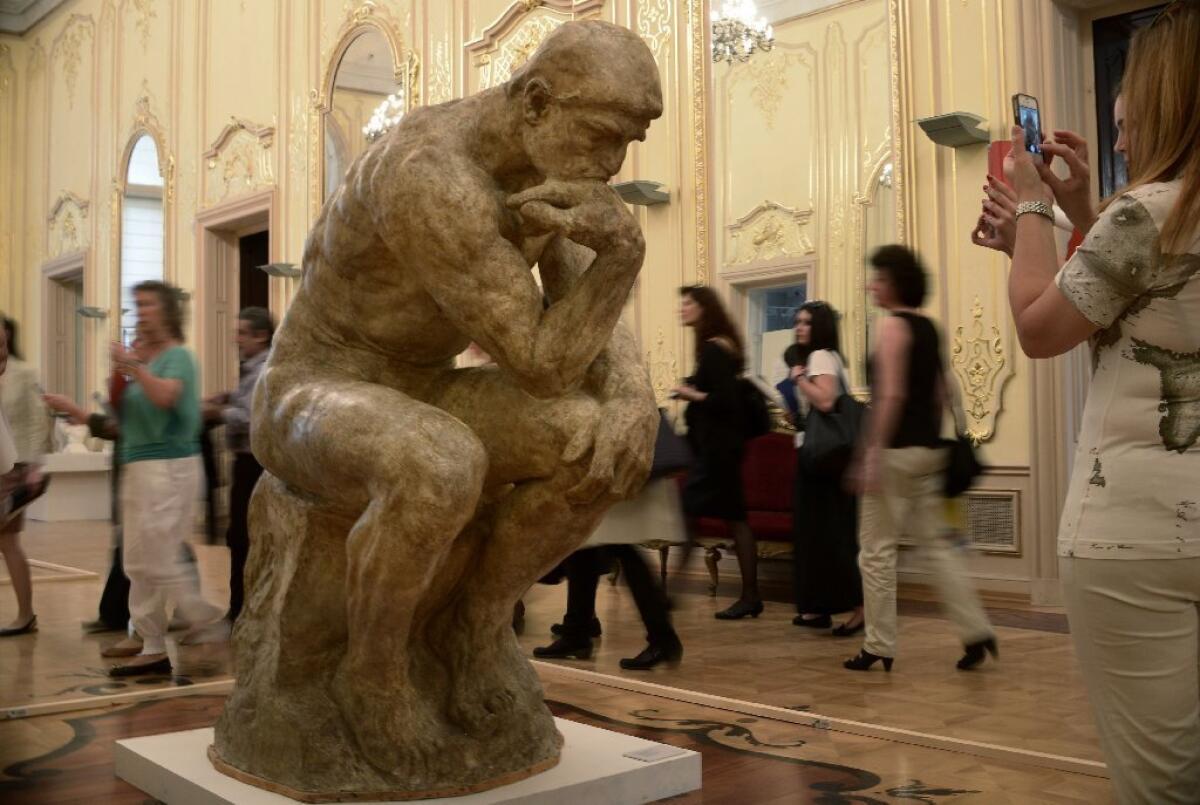Opinion: Electrifying studies that deserve a skeptical look

If you believe the headlines, then people would rather receive electric shocks than be alone with their thoughts for even 15 minutes. Or at least a lot of men would.
It’s probably a better idea not to put wholesale faith in the headlines. And you might want to consider bringing a little skepticism to the conclusions of the study that purportedly found this in the first place.
This is a painful — pun possibly intended — subject. Recently I’ve been trying to figure out why so many people reject sound, replicated science on such important topics as vaccines, climate change and genetically engineered food, preferring to think that the findings are simply the result of a conspiracy. But the increasing frequency of headline-grabbing studies that purport to show things that they really might not show makes this a frustrating experience for both the public and the scientists. (Thinking here of the poorly conducted study that claimed female-named hurricanes are more deadly than those with male names because people don’t take the former seriously.)
The latest example, published in the journal Science, was undertaken by researchers at the University of Virginia and Harvard University. In various studies, they had college students, and then a wider range of people, spend some time just thinking, without gadgetry or books or paper and pencil. Then they asked them to rate their experience; most put it in the middle of the pleasure range. That doesn’t surprise me, though it led researchers to conclude that people found solo thinking time unpleasant. It’s fine, but not generally exciting.
My own guess would be that we find immersion in our own thoughts a lot more engaging when we’re not doing it as part of an experiment, but rather when a thought strikes us that we’d like to spend some time pondering. The desire to do that generally comes upon us unexpectedly. It also doesn’t go well with people setting times on it: You will do this for six minutes. You will do it in 10 or 15 minutes. Social scientists have a hard time mimicking the complexity of real life; that’s OK, as long as they are humble about realizing the shortfalls of experimental design.
OK, next comes the point where they take a few dozen students and subject them to unpleasant but not painful electrical shocks. And to make sure the subjects found it unpleasant, they selected only the people who said they would pay some small sum of money to avoid more shocks. Then they put them into a room to do their thinking, but let them know that they also could, if they wanted, administer more shocks to themselves. A majority of the men actually did so, while only a small number of the women hit the shock button. Some of the subjects shocked themselves multiple times.
The scientists’ conclusion: People apparently would rather shock themselves than have to spend time in quiet reflection.
Seems like a reach to me. I’m not denying the possibility; it just doesn’t seem to me that this study provides strong evidence. Maybe given privacy and time, people decided to try the shock to see if it was really that bad. After all, we can make our own time and place to think, but we don’t often get a chance to try out this kind of equipment at home. Again, maybe they just didn’t like thinking in a stark experimental room.
Finally, college students who only submit to these experiments to get required course credit or to be paid might not represent typical subjects. I remember when my early psych courses in college came with a requirement to be a guinea pig in a certain number of experiments that seemed like utter wastes of time, at least to me and my fellow students. Not a time for being happily lost in thought.
Scientists complain to me all of the time that their studies aren’t accepted and taken seriously enough by the public. And it’s true that our societal disregard for important science can be dismaying. But if the world of science wants to be treated with reverence, researchers might need to think twice about the value and conclusions of the studies that catch the public’s eye.
Follow the Opinion section on Twitter @latimesopinion
More to Read
A cure for the common opinion
Get thought-provoking perspectives with our weekly newsletter.
You may occasionally receive promotional content from the Los Angeles Times.







